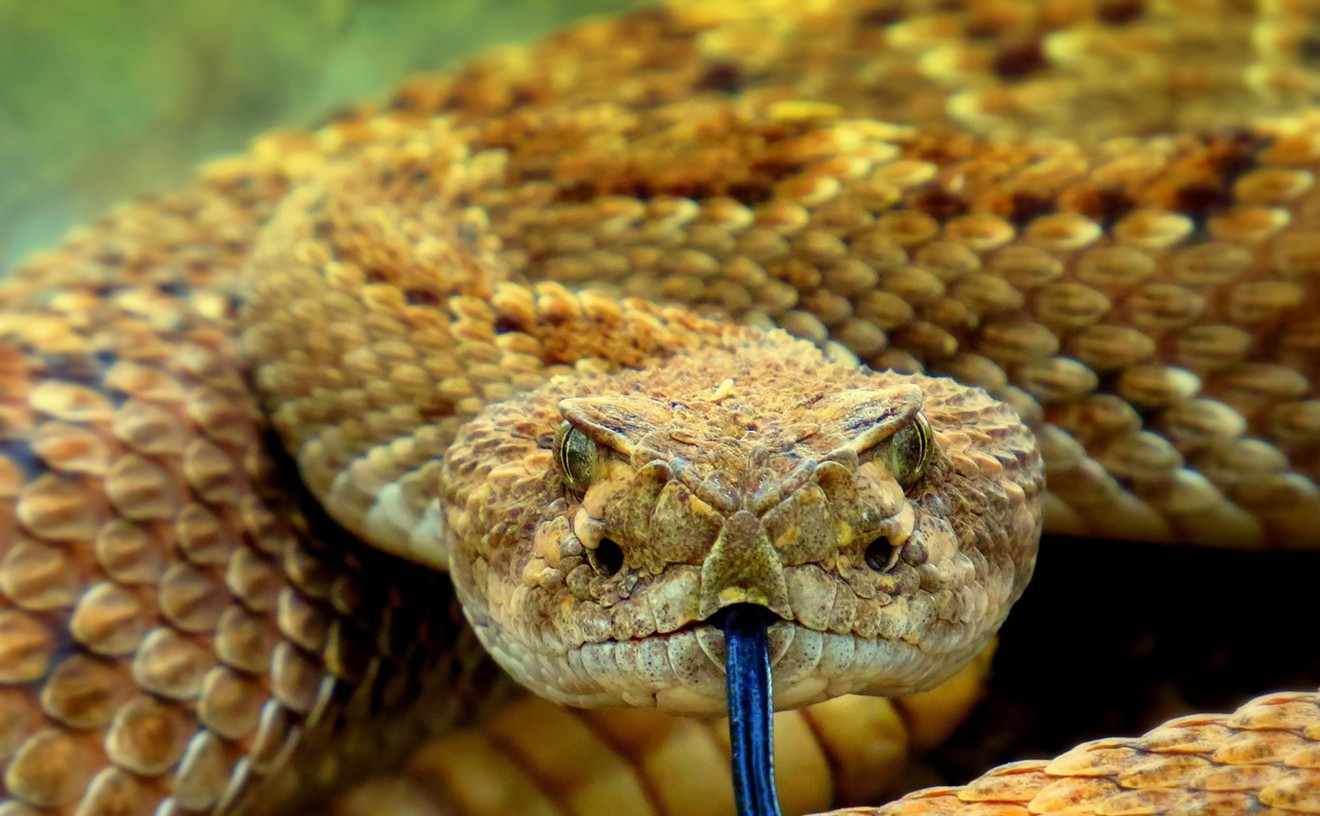Detterline, known for years as "Mr. Longs Peak," has claimed in a series of official grievances that National Park Service officials, perhaps jealous of his popularity with the public, have pushed him away from Longs Peak by transferring him to a remote section of the park ("A Rocky Road," May 29). Detterline's supporters contend that his transfer may compromise the safety of Longs Peak climbers because Detterline is a search-and-rescue expert who knows the mountain intimately.
"It was obvious to us that Detterline's antagonists in the Park Service contrived this thing so that we couldn't stay in the cabin," says Krakauer, author of the best-selling book Into Thin Air. "They seem to be doing everything they can to keep him from going to Longs even on his days off. It just seemed so sad and pathetic and stupid."
Another of Detterline's climbing buddies is even more direct. "It's just bureaucratic bullshit," says Robert "Brownie" Schoene, a University of Washington professor of medicine and expert on high-altitude physiology. Schoene is also an avid climber who reached the summit of Mount Everest in 1981. His studies on high-altitude physiology are read widely by serious climbers. Still, he was probably the least famous of the guests climbing with Detterline last month.
Also in the party was Tom Hornbein, who in 1963 was part of the first American team to reach the Everest summit from the west. Hornbein, who lives in Seattle, has been climbing Longs Peak for more than forty years and helped the Park Service develop some of its first search-and-rescue plans. The veteran climber is convinced that the Park Service's animosity toward Detterline came into play in this summer's incident.
"It looked a lot like they didn't want to do anything to let Jim have access to the mountain," Hornbein says. "Anything they can do to make life more difficult for Jim, they will do."
Hornbein's own book about Everest was mentioned prominently in Krakauer's latest release, which is a first-hand account of trying to climb Everest in 1996. Into Thin Air has been on best-seller lists since it came out last April, and Krakauer has been busy peddling it on the bookstore circuit.
But on July 28 Krakauer was hoping to get away from the hubbub of his book tour and go for a climb with his longtime friends Schoene and Hornbein, as well as with Detterline, who Krakauer says has an "excellent reputation among climbers around the country."
The group was hoping to use a cabin at the base of "The Diamond," the east face of Longs Peak visible along the Front Range. Hornbein, Schoene and Detterline had used the cabin for several years in a row without incident, and the cabin is regularly made available to rangers and their guests as long as it is not reserved for official park use.
Joe Evans, chief ranger at the park, denies that Detterline's party was kept from using the cabin because of bias against him.
Evans says Detterline not only didn't follow proper procedures in requesting the cabin, "it is my impression that there were park personnel that used the cabin that night for official duties." Asked if he can check the logs to see if the cabin was indeed used for "official duties," Evans says he won't. Asked why not, Evans replies, "If it wasn't used, that would lend support to these claims of Mr. Hornbein's."
Schoene says the cabin isn't crucial to making an ascent of Longs Peak, but that letting the climbing party stay there would have been a nice gesture, especially to Hornbein, who is now in his mid-sixties and has an artificial hip. Without the cabin, the foursome had to sleep outside near a lake well over 10,000 feet in elevation and hike about an hour out of the way.
"None of us really cared about sleeping outside," Krakauer says. "But for them to treat a guy like Hornbein like that just shows that the people running the park are clueless."
And Hornbein insists the group did follow park procedures, signing up to use the cabin well in advance. He even wrote a letter to park superintendent Randy Jones saying that he hoped the visit to the park would be trouble-free and not a rerun of the hard feelings that have surrounded Detterline over the past year. This summer Detterline was transferred away from Longs Peak against his wishes. Citing a confidentiality agreement made as part of a deal that allowed him to remain a ranger, Detterline says he can't talk about his recent troubles, including the July 28 incident.
Schoene, who has been climbing in the park for years, can talk about it, though, and he says, "They've been out to nail Jim. This was a chance for some good publicity having somebody like John [Krakauer] in the park. It could have been something positive, but instead they just shoot themselves in the foot."
Krakauer says the incident has broader implications. His book details a brutal night on Everest when five of his fellow climbers died after being caught in a storm. It also examines the drive that leads people to ignore danger when trying to reach high peaks. Having lived in Colorado in the 1970s, he also knows how popular Longs Peak is with both technical climbers and weekend hikers. The decision to keep Detterline and his party out of the cabin was "petty," says Krakauer, but keeping a skilled rescue worker like Detterline away from Longs Peak is just dangerous.
"That's what separates this from just another tempest in a teapot," Krakauer says. "There's a potential for a real tragedy here. They are really opening themselves up to a loss of life." Hornbein and Schoene echo those concerns, as have a number of regular visitors and former park employees.
However, park officials strongly deny that they've put climbers in danger. "I appreciate [Krakauer's] opinion, but I don't agree with it," says park superintendent Jones. Chief ranger Evans, when asked if climber safety has been jeopardized, bluntly answers, "No."
Detterline's future at the park, however, does seem to be at risk. "The relationship is on some kind of collision course," Hornbein says, "and it's hard to imagine the little guy will survive.










